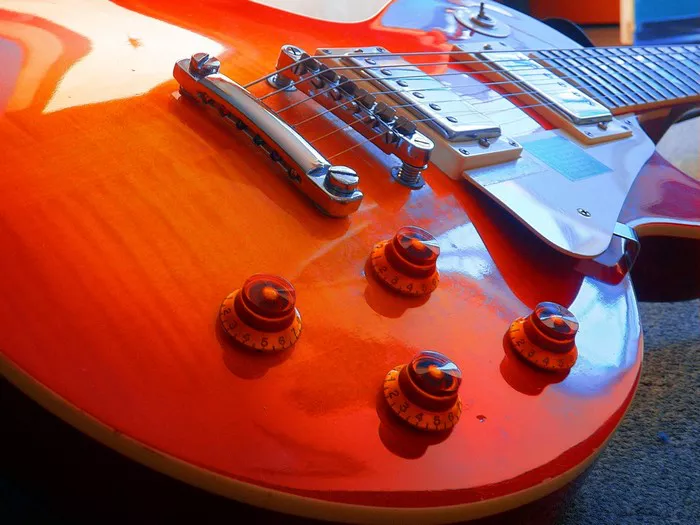When it comes to playing metal music on the guitar, selecting the right strings is crucial. The choice of guitar strings can significantly impact your tone, playability, and overall performance. In this article, we will explore the different aspects of guitar strings, discuss what makes certain strings ideal for metal, and provide valuable advice to help you choose the best strings for your metal guitar playing needs.
Understanding Guitar Strings
Before diving into the specifics of metal guitar strings, let’s take a moment to understand the basics. Guitar strings are typically made of either steel or nickel-plated steel. They come in different gauges, which refers to the thickness of the strings. The gauge of a string is denoted by a number, with lower numbers representing thinner strings and higher numbers representing thicker strings.
What Guitar Strings are Best for Metal?
Metal music demands a specific set of characteristics from guitar strings. Here are some key factors to consider when choosing the best strings for metal:
String Gauge: Thick gauge strings are generally preferred for metal music due to their ability to handle the heavy playing style and produce a more robust tone. Common gauges for metal guitarists range from .010 to .052 or even heavier. The thicker strings provide better sustain, low-end presence, and handle down-tuning more effectively.
Material: Steel and nickel-plated steel strings are the go-to choice for metal guitarists. Steel strings offer increased brightness, clarity, and sustain, making them well-suited for aggressive playing styles. Nickel-plated steel strings, on the other hand, provide a slightly warmer tone with a balanced response. Experimenting with different materials can help you find the perfect balance of brightness and warmth for your metal tone.
Coated vs. Uncoated: Coated strings have a protective coating that extends their lifespan by preventing corrosion and reducing the accumulation of grime and sweat. While coated strings generally have a slightly shorter sustain compared to uncoated strings, they are more durable and can maintain their tone for a longer period. This can be advantageous for metal guitarists who often play aggressive techniques that put more wear and tear on the strings.
Tone and Output: Metal music is characterized by its heavy and aggressive tone. Look for strings that offer enhanced clarity, high output, and strong low-end response. Strings with a balanced frequency response across the entire spectrum can help you achieve the desired level of clarity and articulation in your playing.
Flexibility and Playability: Metal guitarists often perform fast and intricate techniques, such as shredding and sweep picking. Strings with good flexibility and playability can make these techniques more comfortable to execute. It is essential to find strings that strike a balance between thickness for tone and flexibility for ease of playing.
Advice for Choosing the Best Metal Guitar Strings
Now that we have explored the qualities of guitar strings that are best suited for metal, let’s delve into some valuable advice to help you make an informed decision:
Experiment and Explore: Every guitarist has unique preferences when it comes to tone and playability. Don’t be afraid to experiment with different string brands, materials, and gauges to find the combination that best suits your playing style and musical preferences. What works for one guitarist may not work for another, so be open to trying different options.
Consider Your Playing Style: Take into account your playing style and the specific subgenre of metal you enjoy playing. Different subgenres may require different tonal characteristics. For example, if you play more aggressive and down-tuned music, thicker strings may be suitable. If you focus on technical and fast-paced playing, lighter gauge strings with excellent flexibility may be preferable.
Seek Recommendations: Reach out to other metal guitarists, either in person or through online communities, to get recommendations and insights into their preferred guitar strings. Learning from experienced players can save you time and help you narrow down your options.
Quality Matters: Invest in high-quality strings from reputable manufacturers. Quality strings not only provide better tone but also offer improved durability and longevity. Cheap strings may save you money in the short term, but they can negatively impact your tone and require more frequent replacements.
Maintenance and Care: Regardless of the type of strings you choose, proper maintenance and care are essential for preserving their tone and lifespan. Wipe down your strings after each playing session, use string cleaners or lubricants to minimize friction and corrosion, and consider changing strings regularly to maintain optimal performance.
In Conclusion
Choosing the best guitar strings for metal is a crucial step in achieving the desired tone, playability, and overall performance. By considering factors such as string gauge, material, coating, tone, and flexibility, you can find the strings that perfectly complement your playing style and musical preferences. Remember, experimentation and personal preference play a significant role, so don’t be afraid to try different options until you find the strings thatsatisfy your needs. Seek recommendations from other guitarists, take your playing style and subgenre into account, and invest in high-quality strings for the best results. With proper maintenance and care, your chosen metal guitar strings will unleash the power and help you create the heavy and aggressive tones that define the genre. Happy shredding!


